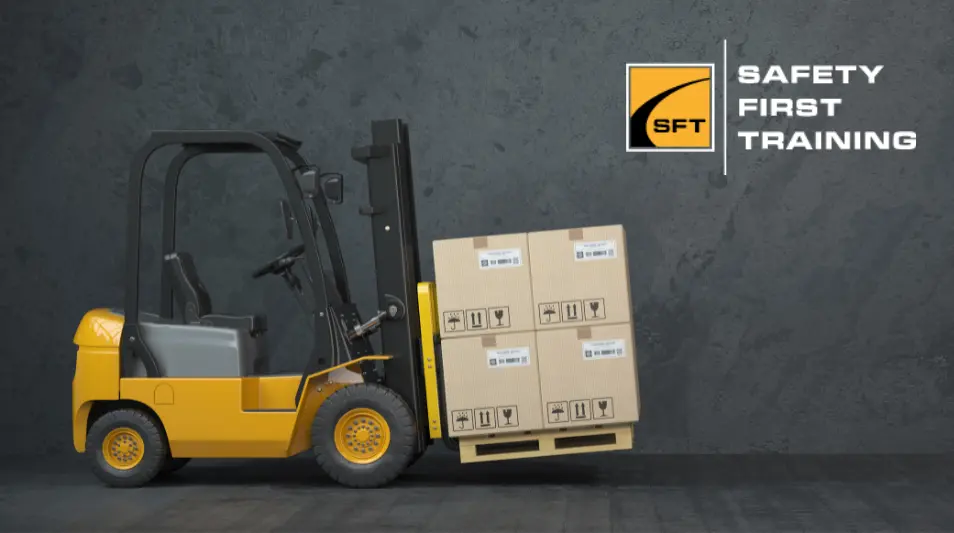
FLT Training, Certification & Licence: Your Complete Guide
Operating a forklift isn't just about moving loads from point A to point B; it's like being the conductor of a powerful symphony of machinery and safety. As someone who's been in the industry for years, I understand the twists and turns of getting properly trained and certified. In this guide, we'll navigate the ins and outs of forklift (FLT) training in Canada together.
Why FLT Training is the Cornerstone of Workplace Safety
We often say that knowledge is power, but in the world of forklifts, knowledge is safety. Without proper training, operating a forklift is like trying to tame a wild beast blindfolded. We want to ensure that every operator has the confidence and skills to handle these machines responsibly.
The Ripple Effect of Proper Training
Protecting Lives: Every safe operation is a step towards preventing accidents.
Legal Compliance: Staying on the right side of the law keeps both employers and employees out of hot water.
Efficiency Boost: A well-trained operator is like a well-oiled machine—everything runs smoother.
Understanding the FLT Training Requirements
Just as you wouldn't climb a mountain without preparation, you shouldn't operate a forklift without the proper training. In Canada, the journey to certification combines both theory and hands-on practice.
Theoretical Training: Building the Foundation
Knowledge is the bedrock upon which practical skills are built.
Safety Procedures and Regulations: We dive deep into the rules of the road—or warehouse, in this case.
Equipment Maintenance Fundamentals: Think of it as learning to listen to your forklift's heartbeat.
Load Handling Techniques: Because balance isn't just for tightrope walkers.
Workplace Hazard Identification: Spotting dangers before they become disasters.
Emergency Protocols: Preparing for the unexpected is half the battle won.
Practical Assessment: Putting Theory into Motion
This is where the rubber meets the road.
Operational Evaluation: We assess your ability to navigate the forklift with finesse.
Maneuvering Skills Testing: Tight corners? No problem.
Load Handling Demonstration: Showcasing your ability to move materials safely.
Emergency Response Practice: Reacting swiftly when seconds count.
FLT Safety Guidelines We All Must Follow
Safety isn't just a checklist; it's a mindset. Let's make it second nature.
Pre-Operation Checklist: An Ounce of Prevention
Before we even turn the key, we need to ensure everything is shipshape.
Inspect the Forklift: A quick look-over can save us from a world of trouble.
Verify Safety Features: Seat belts, alarms, lights—our lifelines.
Assess Load Limits: Because overloading is a recipe for disaster.
Plan Your Route: Knowing the lay of the land keeps surprises at bay.
During Operation: Eyes on the Prize
While we're at the helm, vigilance is our best friend.
Maintain Clear Visibility: If we can't see it, we can't avoid it.
Communicate Effectively: A nod or a wave can go a long way.
Adhere to Speed Limits: This isn't the Indy 500.
Avoid Distractions: Focus is key—no texting and driving here!
Navigating the Legal Landscape
In Canada, the laws around forklift operation are as firm as the grip of a well-maintained forklift tire on the warehouse floor.
Federal and Provincial Regulations
Mandatory Certification: It's not just a good idea; it's the law.
Age Requirements: Operators must meet minimum age criteria—no exceptions.
Regular Recertification: Skills can rust just like machinery; we keep them sharp.
Employer Responsibilities
We all have a part to play.
Provide Accredited Training: Employers must ensure access to proper education.
Maintain Training Records: Keeping tabs on certifications is crucial.
Ensure a Safe Work Environment: A culture of safety starts at the top.
The FLT Certification Process Unveiled
Embarking on the path to certification? Here's how we get from zero to hero.
Choose an Accredited Training Provider: Not all training is created equal.
Complete Theoretical Instruction: Laying the groundwork.
Pass the Written Examination: Testing our knowledge.
Undergo Practical Training: Hands-on experience is irreplaceable.
Pass the Practical Assessment: Proving our mettle.
Receive Certification: The ticket to operating legally and safely.
Keeping Your Certification Alive and Well
Certification isn't a one-and-done deal; it's a living document.
Continuous Learning: The only constant is change, and we adapt.
Regular Refresher Courses: Staying sharp keeps us ahead of the curve.
Incident Reporting: Transparency helps us all improve.
Adherence to Protocols: We walk the walk every day.
Record Keeping: Documentation is our safety net.
The High Cost of Cutting Corners
Operating without proper certification is like playing with fire—we're bound to get burned.
Legal Penalties: Fines and sanctions can hit hard.
Increased Liability: In accidents, uncertified operators bear the brunt.
Insurance Complications: Claims can be denied, leaving us in the lurch.
Reputational Damage: Trust is hard to earn and easy to lose.
Conclusion: Let's Move Forward Safely Together
We've covered a lot of ground, but remember, safety isn't a destination—it's a journey. As someone who's passionate about the industry, I believe that with the right training and mindset, we can all operate forklifts as smoothly as a hot knife glides through butter.
Ready to Take the Next Step?
We at Safety First Training are here to guide you every step of the way. Let's make safety a habit, not a hassle.
Recent Blogs
- Counterbalance Forklift Training Burlington
- Forklift Operator Safety Training
- Why Forklift Certification in Ontario is Non-Negotiable for Your Business in 2025
- Counterbalance Forklift Training Vaughan
- Counterbalance Forklift Training Mississauga
- Forklift Safety: Load Lifting Tips
- Top 5 Mistakes Employers Make When It Comes to Forklift Training (and How to Avoid Them)
- Train the Trainer Safety Courses
- Workplace Safety Training
- WHMIS Training in Richmond Hill
- Fire Safety Training Etobicoke
- Confined Space Awareness Training
- Electric or Propane Counterbalance
- WHMIS Training and Certification in Pickering
- Forklift Facts
- Forklift Certification in Ontario: Ensuring Safety and Compliance
- WHMIS Training and Certification in Markham
- WHMIS 2015 Training
- Propane FAQ
- Counterbalance Forklift Training Whitby

